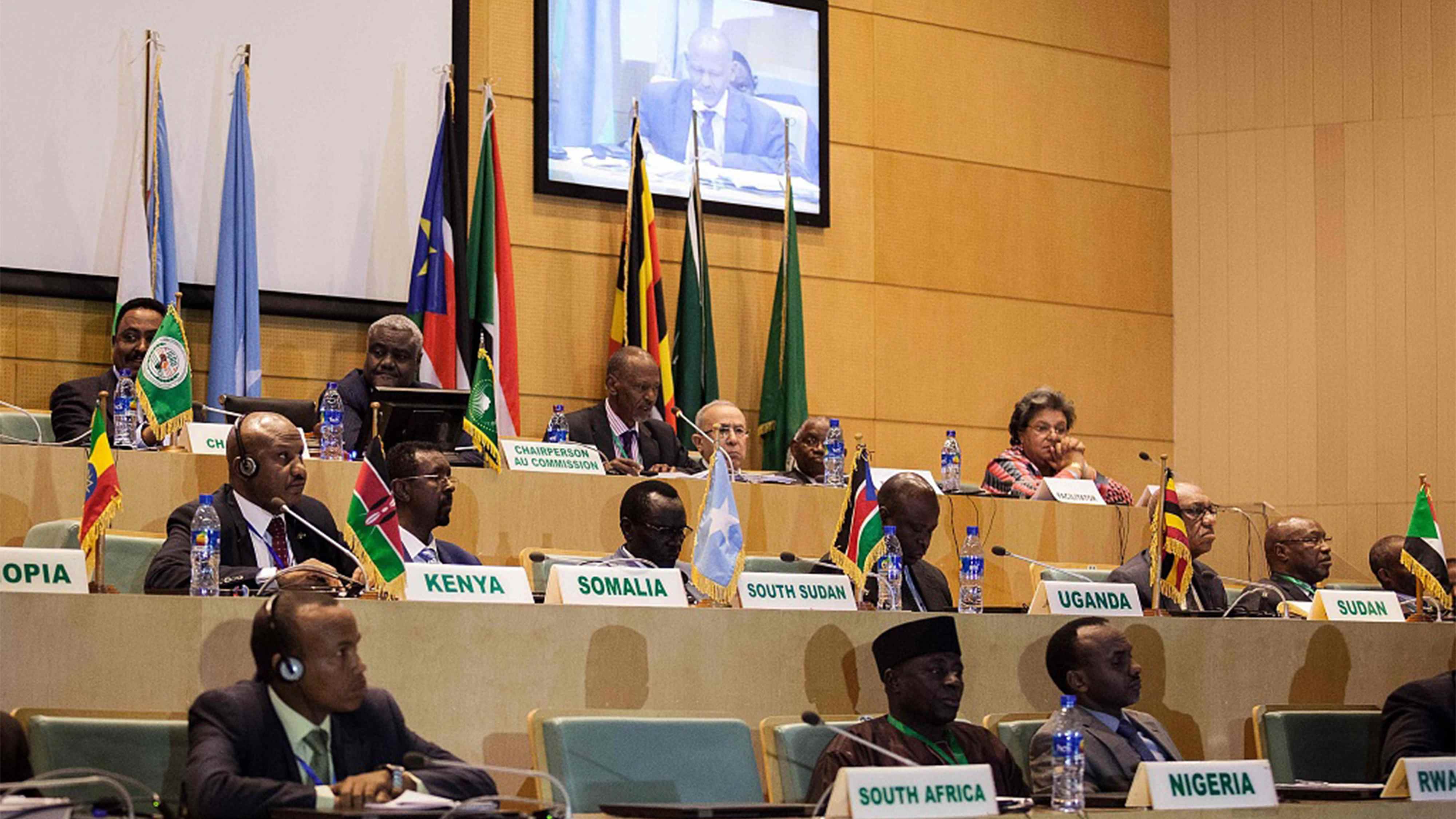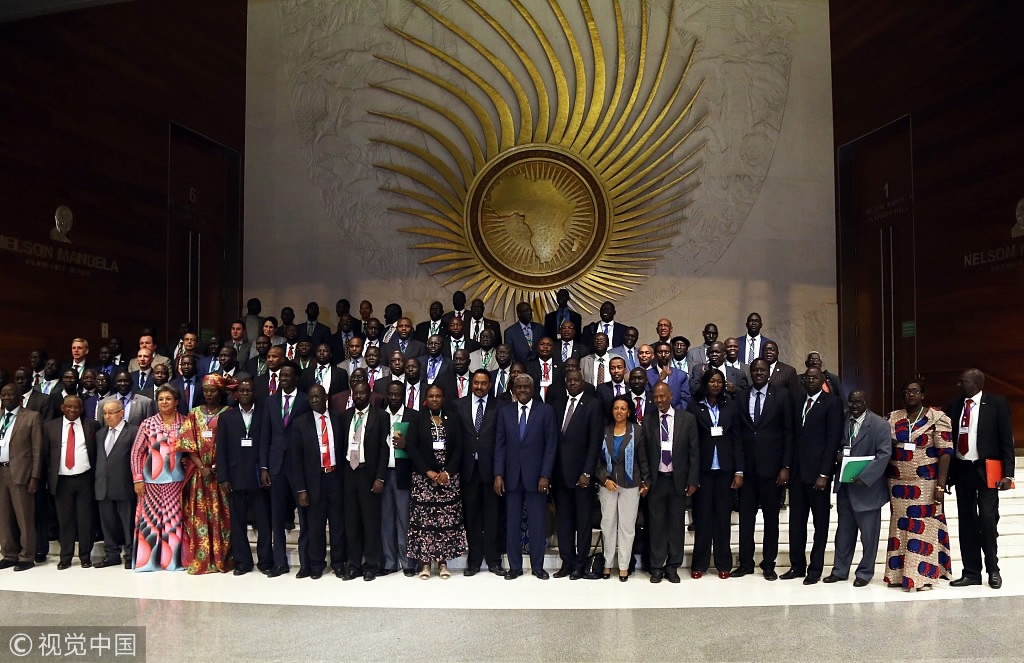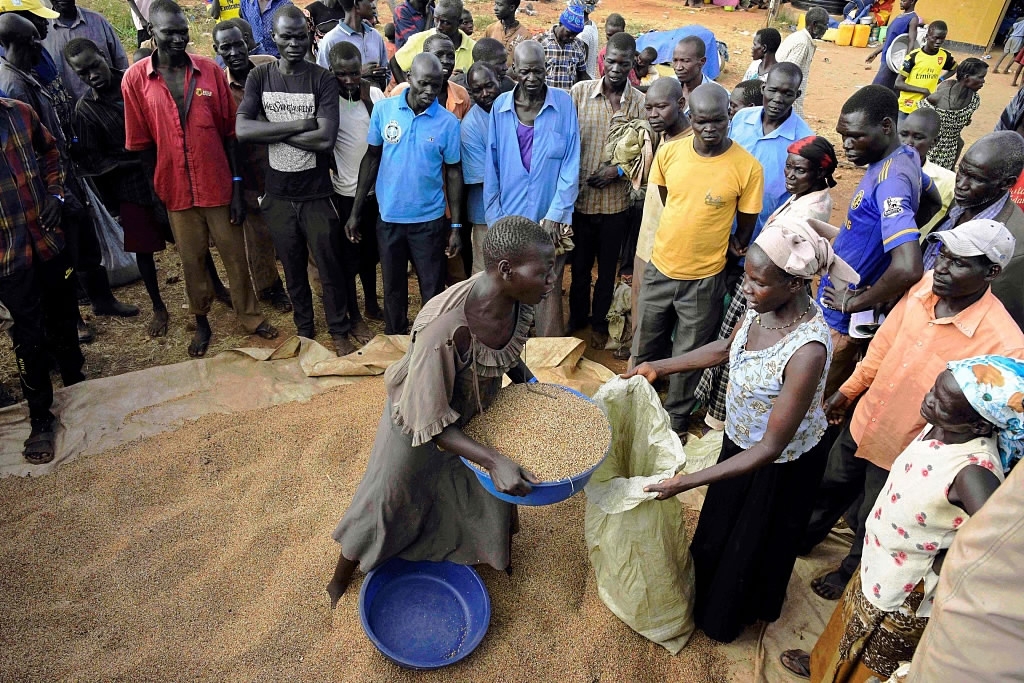
Politics
11:02, 24-Dec-2017
South Sudan ceasefire goes into effect in attempt to end civil war
CGTN

A ceasefire by South Sudan's warring sides took effect on Sunday, in a bid to end the country's four-year devastating war. But there are concerns over whether this latest attempt at peace will hold.
The ceasefire agreement was signed between the government and several armed groups on Thursday during a High-Level Revitalization Forum, which was convened by the regional bloc South Sudan's Intergovernmental Authority on Development (IGAD), in the Ethiopian capital Addis Ababa.
The agreement primarily aims at revitalizing the 2015 peace agreement, cease hostilities, ease humanitarian access, ensure civilian protection and introduce sanctions on those violating the accord.
Parties called on to implement ceasefire agreement
IGAD bloc and the African Union (AU) called on the country's parties in the on-going conflict to focus on fully implementing the newly-signed revitalized agreement.

Political sides in South Sudan announced a cease-fire to invigorate the peace deal, which was signed in 2015, under the guidance of Intergovernmental Authority on Development on December 21, 2017. /VCG Photo
Political sides in South Sudan announced a cease-fire to invigorate the peace deal, which was signed in 2015, under the guidance of Intergovernmental Authority on Development on December 21, 2017. /VCG Photo
The five-day South Sudan revitalization forum concluded on Friday after more documents signed by the parties, all in the name of implementing the cessation of hostilities agreement.
IGAD said South Sudanese actors should stay committed to the letters and spirits of the deal.
The Commission chair of AU Moussa Faki Mahamat said this is a make or break time, worrying about seeing the cessation of hostilities deal on the ground.
Both IGAD and AU vowed to support South Sudan throughout the implementation phase of the signed revitalized agreement.
The United Nations refugee agency has welcomed the ceasefire agreement and urged the South Sudan parties to ensure peace in the country.
"The latest initiative comes as a ray of hope for South Sudanese who have witnessed the ravages of war since 2013," said Arnauld Akodjenou, United Nations High Commissioner for Refugees (UNHCR) Special Envoy for the South Sudan situation.
UNHCR also called for the inclusion of refugees in shaping the destiny of South Sudan.
‘‘We are calling for unreserved support to translate this agreement on paper into silencing the guns throughout South Sudan,’’ Akodjenou said.
The war-ravaged country
South Sudan is ranked by the UN as Africa’s biggest refugee crisis, coming third worldwide after Syria and Afghanistan.

Newly arrived refugees from South Sudan receiving a portion of sorghum at the Ngomoromo border post, in Ugandan, on April 10, 2017. /VCG Photo
Newly arrived refugees from South Sudan receiving a portion of sorghum at the Ngomoromo border post, in Ugandan, on April 10, 2017. /VCG Photo
The country has been war-ravaged for over four years. The fighting began after President Salva Kiir accused his then deputy Riek Machar of plotting a coup against his government. Machar denied the allegations but then went on to mobilize a rebel force to fight the government.
A UN-backed peace deal was signed in 2015, paving the way for the 2016 formation of a unity government, with Machar taking up the first vice president position. The deal was, however, short-lived as fighting broke out in the capital Juba in July 2016, forcing Machar to flee the capital.
Regional leaders and the international community have been pressuring the warring factions to engage in talks to end the conflict, though Machar remains holed up in South Africa where he went to seek medical treatment.
(CGTN's Jerry Owilli, Girum Chala contributed to the story.)

SITEMAP
Copyright © 2018 CGTN. Beijing ICP prepared NO.16065310-3
Copyright © 2018 CGTN. Beijing ICP prepared NO.16065310-3